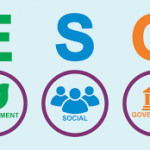I began this series of articles last year. In Parts 1 and 2 (which you can find on my LinkedIn profile), I discussed what it means to actually “sign a form 5500” and a few of the more talked about responsibilities and liabilities that come with it. In this next installment, I’d like to dig a little deeper into some of the lesser “unknown” responsibilities of a Plan Sponsor.
Before we get into the nitty gritty, let me clarify a few things first. A Plan Sponsor isn’t alone. Yes, they are a fiduciary, but so is the Business Owner/Employer who sponsors the plan, as well as the Benefits or Investment Committee, CFO, CEO, Board Members and anyone within an organization that handles or makes decisions on a retirement plan. This means in some cases, W-2 employees are also fiduciaries and not even know it. This may not sound like a big deal, and most of the time, it probably isn’t. But when that DOL audit letter arrives, or even worse, being named as a defendant in a lawsuit, I bet it will matter then.
In Part 1, I mentioned having conversations with Plan Sponsors that told me they only “sign” the Form 5500 and have no decision making authority whatsoever. I was then left with the unpleasant task of trying to make them understand that regardless, they are, in fact, fiduciaries, regarded as 3(16) administrators by signing the form, and are considered responsible for the day-to-day operations of the plan according to both the DOL and the IRS.
Anyway, I could go on and on about some of the more interesting responses I’ve gotten over the years, but let’s get back to those duties. If you google “A Plan Sponsor’s Responsibilities,” the first or second hit you’ll get is a link to the IRS website. The IRS put together a comprehensive list of responsibilities, along with numerous other links to the DOL, instructions and other resources. Here’s a brief summary of that list:
- An Employer is responsible for keeping their plan in compliance;
- Double-check the options you selected in your adoption agreement;
- Know what your service agreement does and doesn’t cover;
- Communicate with your pre-approved plan provider;
- Communicate with your plan service provider;
- Keep up with your ongoing plan maintenance responsibilities;
And if you’re still breathing, here’s the last one,
- Keep up with the rules.
Whew!
Now, here’s a few more things to keep in mind, (a) this is a very brief summary as there are multiple duties listed under each of these headings, (b) this is only the IRS’ list, (c) the DOL has their own list of fiduciary responsibilities; and last but not least, (d) Employers are Business Owners, which means that most of the time they’re busy running their business. So who’s doing all this – the Plan Sponsor, HR Department Administrators, Benefits Committee, and yes, W-2 employees, and yes again, all considered fiduciaries.
So, after you’ve taken another deep breath, I’d like to get specific on just one of the items above, #6 – Keep up with your ongoing plan maintenance responsibilities. One of the sub-duties under this heading is getting an independent review of your plan. The IRS specifically states, “An independent reviewer may see something that has been overlooked by others, which could save money for you and your employees and may improve benefits.”[1] Now I’m not best buds or anything with the IRS but when it comes to this, I couldn’t agree more.
I’ve been told more times than I can remember by Plan Sponsors that their plans are “all good.” I understand they’re not interested in our services and that’s OK, I get it, but just saying something doesn’t make it true. So the questions I’m left with are “How do you know?” “How could you know?” “Have you had an independent plan review by an outside party, separate from your own providers?”
In my opinion (and the IRS seems to agree with me), the only sure way to know if everything is “all good” in your plan is to have an experienced and knowledgeable independent party outside of all your current providers review it for you. Retirement plans have more moving parts than you realize, so the probability of something being overlooked is extremely high. With so much at stake, you want to be sure. Your employees deserve it and it’s your responsibility. Don’t we teach our kids not to assume? Don’t make the same mistake with your retirement plan.
The good news here is that your providers can and should be helping you. Remember, retirement plans are a benefit not a burden. So if this all seems too much and your plan is nothing but a headache, then you’re not working with the right team, period.
If you have any questions about your plan, I urge you to reach out to your providers. As I’ve written before, they work for you, not you for them. And I can guarantee they’re not working for free. Make them answer the tough questions. After that, if you still feel that you’re not getting the answers, service and support you need and deserve, then perhaps it’s time to think about other options.
I also encourage you to visit the IRS’ website, specifically A Plan Sponsor’s Responsibilities to learn more. And if our Team at Priority Pension Services, Inc. (AFI) can be of any assistance, we’d be happy to help. We’ve been providing comprehensive administration, actuarial services and retirement plan consulting & solutions for over 20 years. And yes, we also provide Independent Retirement Plan Review services. Please call 516-522-2638 or or email us at info@ppsafi.com for more information.
[1] https://www.irs.gov/retirement-plans/plan-sponsor/a-plan-sponsors-responsibilities







